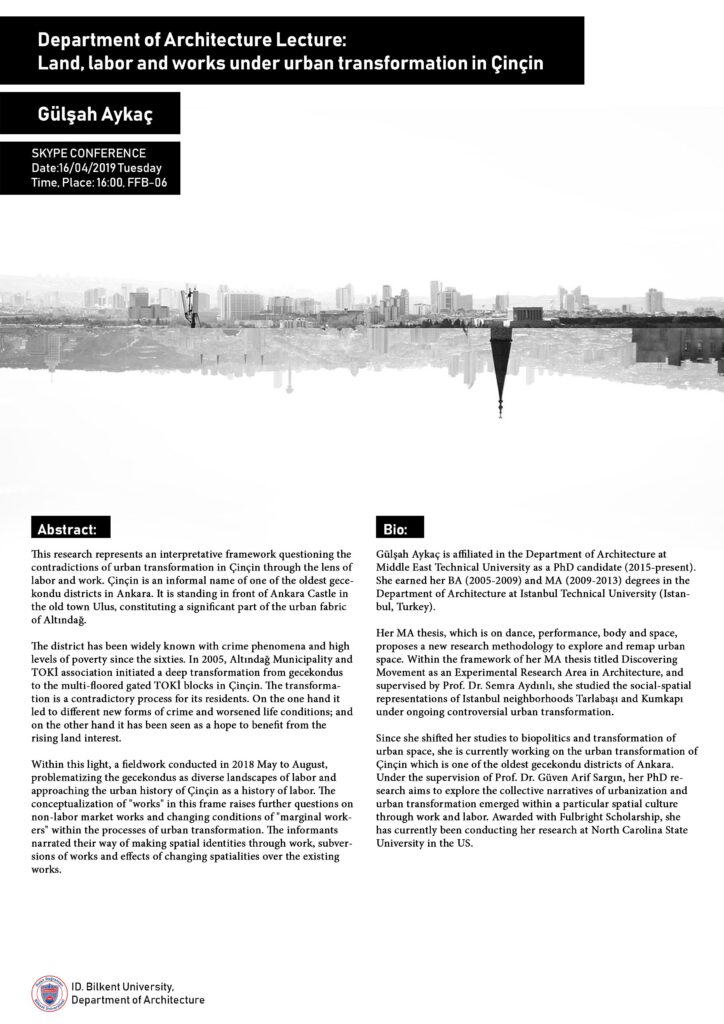
This research represents an interpretative framework questioning the contradictions of urban transformation in Çinçin through the lens of labor and work. Çinçin is an informal name of one of the oldest gecekondu districts in Ankara. It is standing in front of Ankara Castle in the old town Ulus, constituting a significant part of the urban fabric of Altındağ. The district has been widely known with crime phenomena and high levels of poverty since the sixties. In 2005, Altındağ Municipality and TOKİ association initiated a deep transformation from gecekondus to the multi-floored gated TOKİ blocks in Çinçin. The transformation is a contradictory process for its residents. On the one hand it led to different new forms of crime and worsened life conditions; and on the other hand it has been seen as a hope to benefit from the rising land interest. Within this light, a fieldwork conducted in 2018 May to August, problematizing the gecekondus as diverse landscapes of labor and approaching the urban history of Çinçin as a history of labor. The conceptualization of “works” in this frame raises further questions on non-labor market works and changing conditions of “marginal workers” within the processes of urban transformation. The informants narrated their way of making spatial identities through work, subversions of works and effects of changing spatialities over the existing works.
Biography:
Gülşah Aykaç is affiliated in the Department of Architecture at Middle East Technical University as a PhD candidate (2015-present). She earned her BA (2005-2009) and MA (2009-2013) degrees in the Department of Architecture at Istanbul Technical University (Istanbul, Turkey). Her MA thesis, which is on dance, performance, body and space, proposes a new research methodology to explore and remap urban space. Within the framework of her MA thesis titled Discovering Movement as an Experimental Research Area in Architecture, and supervised by Prof. Dr. Semra Aydınlı, she studied the social-spatial representations of Istanbul neighborhoods Tarlabaşı and Kumkapı under ongoing controversial urban transformation. Since she shifted her studies to biopolitics and transformation of urban space, she is currently working on the urban transformation of Çinçin which is one of the oldest gecekondu districts of Ankara. Under the supervision of Prof. Dr. Güven Arif Sargın, her PhD research aims to explore the collective narratives of urbanization and urban transformation emerged within a particular spatial culture through work and labor. Awarded with Fulbright Scholarship, she has currently been conducting her research at North Carolina State University in the US.

